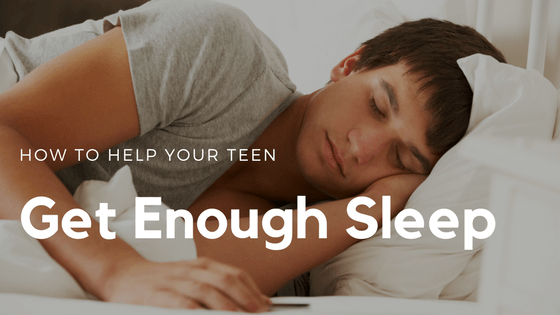Sleep is critical for our executive functioning. According to the National Sleep Foundation, teenagers need between 9 and 10 hours of sleep a night. However in the foundation’s 2006 poll of over 1,500 6th through 12th graders and their parents, 45% of adolescents between the ages of 11 and 17 were getting less than 8 hours of sleep per night. Getting enough sleep is vital because recent studies have linked sleep problems to obesity, aggressive behavior, learning and memory issues, as well as anxiety and depression.
How do Teens Get the Sleep They Need?
Knowing adequate sleep is a huge part of executive dysfunction, I admit to being very excited when I discovered that a parent in one of my family coaching sessions was an M.D. who specializes in sleep disorders. I really wanted to pick his brain so I asked him, “What advice do you give to get a good night’s sleep?” He shook his head and said it is easier to tell you what not to do. He confirmed that the use of technology just before bedtime is a real source of sleep problems, but what he said next surprised me. Parents may be getting their children to bed on time only to have them awakened in the middle of the night by friends texting or calling on their cell phones! It is not like the old days when the family phone rang in the middle of the night and alerted the parents.
 This is a big problem for some kids. The 2011 Sleep in America Poll discovered that 18% of teens, 13 to 18, are awakened by their cell phones at least a few nights a week. The doctors solution? Keep your teen’s cell phone at night. I would add that you should let your teen alert his or her friends that this is going to happen so friends learn it is pointless to try to call each other in the middle of the night. This is one of those times it’s definitely okay in my book to take some heat by setting boundaries for your child’s welfare.
This is a big problem for some kids. The 2011 Sleep in America Poll discovered that 18% of teens, 13 to 18, are awakened by their cell phones at least a few nights a week. The doctors solution? Keep your teen’s cell phone at night. I would add that you should let your teen alert his or her friends that this is going to happen so friends learn it is pointless to try to call each other in the middle of the night. This is one of those times it’s definitely okay in my book to take some heat by setting boundaries for your child’s welfare.
At a recent group class an eighth-grader responded to the question, “What’s been working well?” He told us that going to bed earlier had helped. He said it was easier to get up and that his days are going better. That was an important insight for this young man. Help your children develop good sleep hygiene. Set bedtime for 9 hours. Stop screen time at least 30 minutes before lights out and snag those phones before they go to bed. Their executive functions will improve!


Helpful points in this post. It would be a big help.